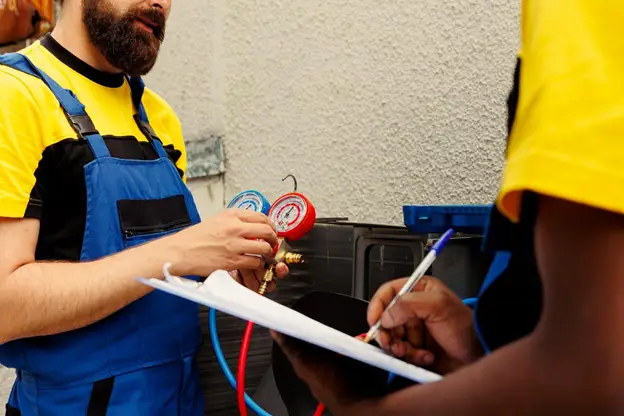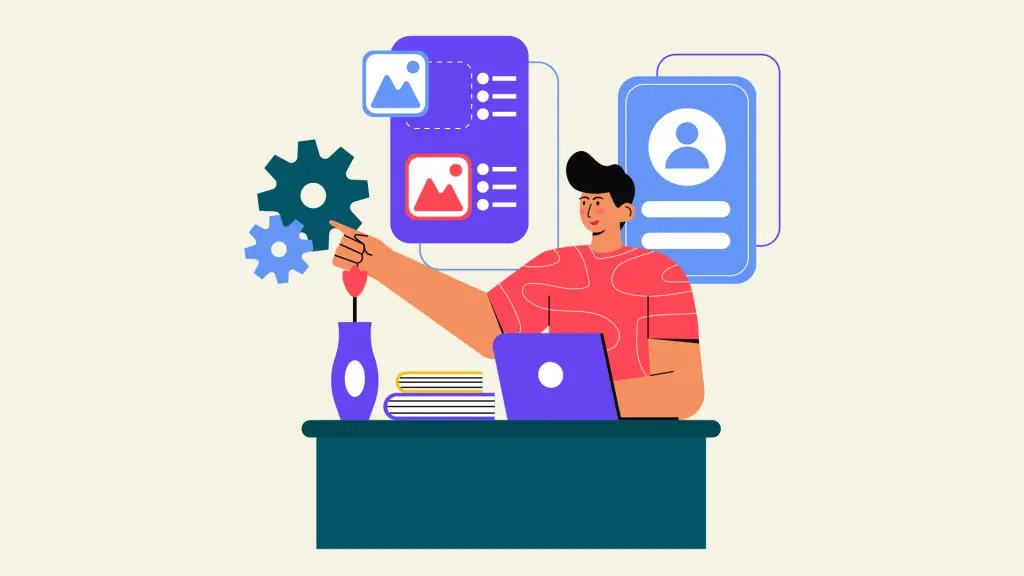Heat pumps are an energy-efficient solution for heating and cooling your home year-round. Unlike traditional HVAC systems that rely on separate units for heating and cooling, heat pumps transfer heat between the indoors and outdoors to keep your home comfortable. To keep them functioning optimally, regular maintenance is important.
Routine care improves the efficiency of your heat pump extends its lifespan and reduces the likelihood of unexpected breakdowns. Whether you’re a new heat pump owner or looking to improve the performance of an existing system, here are some maintenance tips every homeowner should follow.
Check and Replace Air Filters Regularly
One of the simplest yet most critical tasks in maintaining your heat pump is checking and replacing the air filters. Dirty filters restrict airflow, forcing the system to work harder than necessary and reducing efficiency.
Ideally, filters should be checked every month, especially during peak usage seasons, and replaced at least once every one to three months depending on usage, the presence of pets, and air quality in your area. Clean filters help maintain proper airflow, ensure better indoor air quality, and keep your energy bills in check.
Schedule Seasonal Professional Tune-Ups
While there are many maintenance tasks homeowners can perform themselves, some jobs are best left to professionals. A certified technician will inspect components like refrigerant levels, electrical connections, blower motor operation, and thermostat calibration. Companies that specialize in expert heat pump care can offer customized service plans that include comprehensive inspections, tune-ups, and priority service. Scheduling professional maintenance at least once a year, preferably before the start of the heating or cooling season, ensures that potential issues are caught early.
Keep the Outdoor Unit Clear
Your heat pump’s outdoor unit (the condenser) plays a key role in the heat exchange process. For it to function properly, it needs unobstructed airflow. Over time, leaves, dirt, snow, and debris can accumulate around the unit, affecting its performance.
Make it a habit to check the outdoor unit at least once a month. Trim back any vegetation, keep the area clear of obstructions, and remove any build-up of debris on or around the unit. In winter, brush off snow and ice to prevent damage and airflow blockages.
Inspect and Clean Coils and Fins
The coils and fins of your heat pump require attention. Over time, dust and grime can accumulate on these components, reducing heat transfer efficiency and increasing energy consumption.
Turn off the system before cleaning, and use a soft brush or vacuum with a brush attachment to gently clean the coils and straighten bent fins. Avoid using high-pressure water or abrasive materials, which can damage delicate parts. Regular cleaning supports better performance and reduces strain on the system.
Monitor Thermostat Settings
A properly calibrated thermostat keeps your home comfortable while ensuring your heat pump operates efficiently. Make sure your thermostat is set to a consistent temperature and avoid frequent adjustments, which can overwork the system.
For optimal performance, consider installing a programmable or smart thermostat. These devices can automate temperature settings based on your schedule, reduce energy consumption when you’re away, and provide insights into system performance. They help prevent unnecessary cycling, which wears out components faster.
Listen for Unusual Noises
Heat pumps typically produce a steady, low-level hum during operation. If you begin to hear grinding, squealing, rattling, or clicking sounds, it’s a sign something may be wrong. These noises could indicate loose components, motor issues, or refrigerant leaks.
Ignoring unusual sounds can lead to more extensive damage. If you notice anything out of the ordinary, turn off the system and contact a qualified technician immediately to diagnose and address the problem before it worsens.
Check for Refrigerant Leaks
Refrigerant is crucial to the heat pump’s heating and cooling process. If refrigerant levels drop due to a leak, the system will struggle to maintain desired temperatures and may eventually shut down altogether.
Symptoms of a leak include reduced heating or cooling performance, ice buildup on the coils, and hissing noises near the refrigerant lines. Because handling refrigerant requires specialized knowledge and equipment, it’s best to leave inspection and recharging to trained professionals.
Heat pumps are designed to offer efficient, year-round comfort, but like any system, they require regular attention to stay at their best. By performing simple tasks like filter changes, keeping the unit clean, and scheduling expert care, you can improve your system’s reliability and energy performance.
Investing time in maintenance today helps prevent major repairs tomorrow, extends the life of your equipment, and ensures your home stays comfortable in every season. Stay proactive, and your heat pump will reward you with years of efficient service. Regular maintenance will typically keep your system efficient, but rising utility costs should prompt a review of your equipment’s performance and a possible consultation with an HVAC expert.






